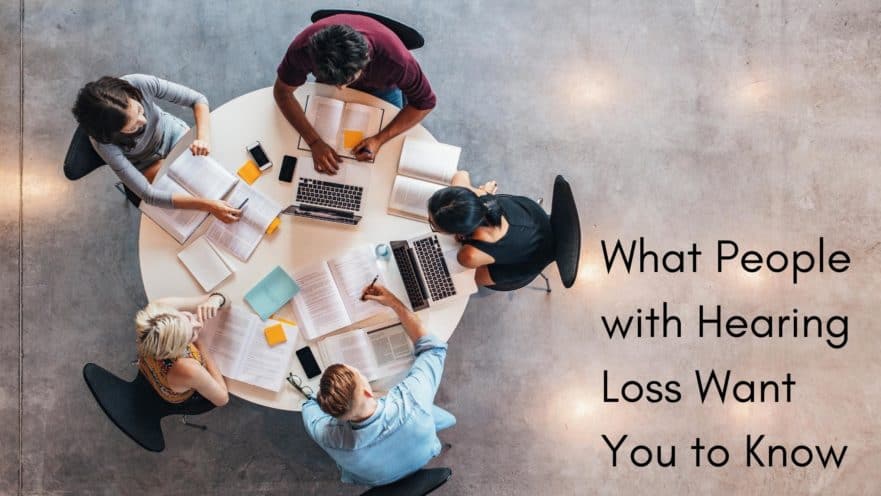Hearing loss is a common medical issue that many of us face. Around 48 million Americans (about 14% of the population) have hearing loss, and it is heavily distributed amongst those above age 60.
Still, hearing loss is an invisible disability. Those without hearing loss may try to imagine what it is like, but the experience of actually having hearing loss cannot be realistically imagined. When you can’t see the problem that someone else is having, it’s easy to downplay it, ignore it, or forget about it.
If you’ve spent a significant amount of time around someone with hearing loss, you know just how big an impact it can have on their life, and yours! Here are a few things that people with hearing loss want to tell those with normal hearing:
Hearing Loss Causes Fatigue
Those with normal hearing understand the words that other people say more or less automatically. With hearing loss, things are different. Our whole brain becomes engaged in the process of simply figuring out what we are hearing. That comes prior to actually listening to what is being said, or thinking about it and formulating a response. This means our brain has to work overtime throughout the course of a conversation, and we’re likely to become exhausted a lot sooner than a person with normal hearing. That means we might need to end a conversation sooner than you might be used to.
We’re Not Being Rude or Stupid
Much in the same way that hearing loss may require us to end a conversation earlier than you might like, it can also lead to miscommunication or missed connections. If we don’t respond to your greeting, or respond inappropriately, it’s probably due to hearing loss and not the fact that we were raised by wolves. If someone seems to be ignoring you at the store, take a minute to consider whether they can hear you before you get angry!
Hearing Aids Are Not Like Corrective Lenses
About 75% of Americans wear glasses or contacts, so the urge is strong to compare hearing aids to vision correction. Unfortunately, hearing loss doesn’t work like near- or far-sightedness. You can imagine hearing loss as being more like losing part of your retina, creating a blind spot. If the damage is not too bad, you might still be able to make out a lot of what is in the blind spot. If the damage is worse, you may not be able to see anything at all in that part of your field of vision.
Those with mild hearing loss may be able to experience something very close to normal hearing with the use of hearing aids. For those with more profound hearing loss, hearing aids may make things just loud enough that they can hear them, but will not improve the clarity of the sound in the same way that eyeglasses produce a nice, crisp picture of the world.
Do Not Speak On Our Behalf
Sometimes, especially when people are in a hurry, they’ll take over a conversation to move things along, rather than letting us figure out what is being said and answer for ourselves. This is insulting, demeaning, and can be humiliating—not to mention it may lead to miscommunication.
If you notice that we are missing that someone is asking us a question, you can repeat the question for us or draw our attention to the asker, but please do not cut us out of the conversation.
Learning a Few Tricks Can Go a Long Way
Sometimes when people realize they’re speaking to someone with hearing loss, they’ll speak louder and more slowly. This impulse is good, but they often overdo it, or do it the wrong way.
Never shout in order to be understood by a person with hearing loss. Shouting only distorts your voice and makes it even more difficult to hear you. You can speak louder, but don’t break into a yell. You can speak slower, but don’t draw out your vowels. Instead, put a little extra space between your words.
It also helps a lot to remember to always make sure you have our attention before you start talking to us. Don’t try to shout things from another room. Face us when you speak, and keep your lips visible. It’s always a good idea to ask us directly if there’s anything you can do to help us understand you better! We may have picked up a few tricks, ourselves.
If you or a loved one may be living with untreated hearing loss, make an appointment for a hearing test today and find out what a good set of hearing aids can do to help you stay in the conversation!

